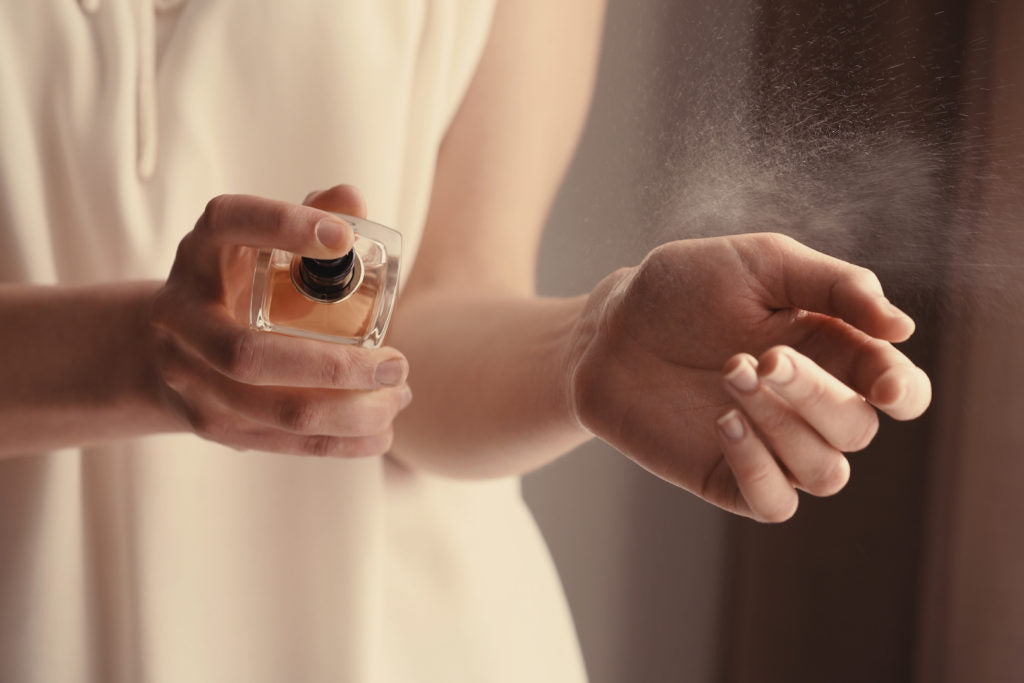Is Your Perfume or Cologne Giving You Asthma?
Did you know that asthma prevalence and severity is greater in women than in men? Yup, it’s true. In fact, there is mounting evidence that shows this is in a great deal related to female steroid sex hormones with estrogen being the primary subject of study.

Now you might be wondering, what does all of this have to do with perfume and cologne? We’re glad you asked.
You see, perfumes, colognes and other synthetic fragrances often contain chemicals known as phthalates. These substances are established xenoestrogens, meaning they exert an estrogen-mimicking effect in the body. They also happen to be linked to hormone-related issues like infertility, hypothyroidism, reproductive developmental issues, ovarian dysfunction, and uterine fibroids.
Xenoestrogens also happen to be allergenic. As a matter of fact, adverse reactions to chemicals commonly used in synthetic perfumes and also fragrant cosmetic products are very common. Research has found that exposure to these products can induce allergic contact dermatitis, heightened photosensitivity, itchiness, redness and inflammation. In addition to skin allergies, inhaling synthetic fragrance and topical application may also increase the risk for asthma by increasing the activity of estrogen in the body.
The Stats
In a minute we will explain more about the mechanisms in which perfume and cologne can induce asthma, but before we do that, consider some of these statistics:
According to an extensive online survey of adults in America, of which 26.8% responded as being medically diagnosed with asthma or an asthma-like condition;
- 41.0% of asthmatics report health problems from air fresheners or deodorizers
- 28.9% from scented laundry products coming from a dryer vent
- 42.3% from being in a room cleaned with scented products
- 46.2% from being near someone wearing a fragranced product.
Of these effects, 62.8% would be considered “disabling” by definition of the Americans with Disabilities Act. As it turns out, 99.3% of asthmatics are exposed to synthetic fragranced products at least once a week. 36.7% of them suffer on a regular basis; not being able to use a public restroom if it has an air freshener or deodorizer, 39.7% not able to shop in stores with air fresheners and even 35.4% of asthmatics have lost workdays and even their job because of fragranced product exposure in the workplace.

The Science
You might be wondering, how is it that synthetic fragrances cause this sort of irritation? Well, there are likely many mechanisms involved in the allergenic effects of synthetic fragrances, but it seems a lot of them trace back to estrogen.
As mentioned, fragrance commercial products tend to contain at least one or many xenoestrogen. These chemicals increase the activity of the numerous estrogen receptors in the immunoregulatory cells. Estrogen has the ability to skew immune responses toward allergy. Studies have found that estrogen may even directly cause the deleterious effects in asthma. Estrogen has also been found to indirectly contribute to asthma by modulating various inflammatory pathways, including the secretory leukoprotease inhibitor, transient receptor potential vanilloid type 1 ion channel and nitric oxide production. 3
These channels are all commonly known to cause lung inflammation. Additionally, estrogens promote the degradation of mast cells. This results in the release of the major inflammatory mediators of acute hypersensitivity, including both histamine and leukotrienes, which is an obligatory event seen in allergic reactions. 4
The Bottom Line
It is well established and clear that synthetic fragrances can cause irritation; particularly to asthmatics. However, as it turns it, the endogenous estrogens contained in colognes, perfumes and scented products may also appear to play a role in the development of asthma and allergies in general.
Therefore, if you suffer from asthma, sensitive skin, or have a known histamine intolerance, we strongly suggest avoiding the use of commercial, synthetic fragrances and instead use truly natural, non-toxic fragrances like Presence.


The Natural Path to Perfect Skin
30 PAGES FULL OF SKINCARE SECRETS







Leave a comment